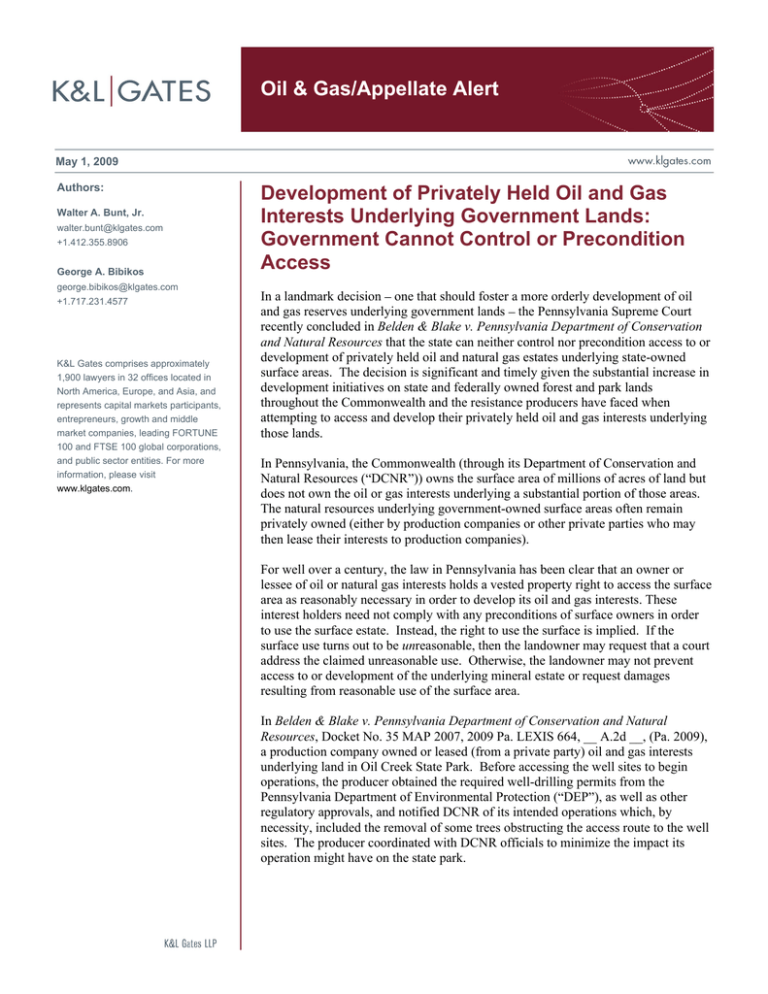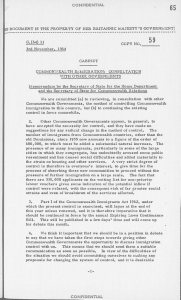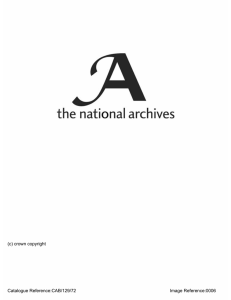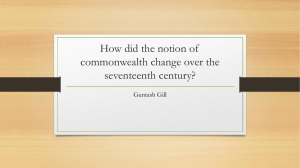
Oil & Gas/Appellate Alert
May 1, 2009
Authors:
Walter A. Bunt, Jr.
walter.bunt@klgates.com
+1.412.355.8906
George A. Bibikos
george.bibikos@klgates.com
+1.717.231.4577
K&L Gates comprises approximately
1,900 lawyers in 32 offices located in
North America, Europe, and Asia, and
represents capital markets participants,
entrepreneurs, growth and middle
market companies, leading FORTUNE
100 and FTSE 100 global corporations,
and public sector entities. For more
information, please visit
www.klgates.com.
Development of Privately Held Oil and Gas
Interests Underlying Government Lands:
Government Cannot Control or Precondition
Access
In a landmark decision one that should foster a more orderly development of oil
and gas reserves underlying government lands the Pennsylvania Supreme Court
recently concluded in Belden & Blake v. Pennsylvania Department of Conservation
and Natural Resources that the state can neither control nor precondition access to or
development of privately held oil and natural gas estates underlying state-owned
surface areas. The decision is significant and timely given the substantial increase in
development initiatives on state and federally owned forest and park lands
throughout the Commonwealth and the resistance producers have faced when
attempting to access and develop their privately held oil and gas interests underlying
those lands.
In Pennsylvania, the Commonwealth (through its Department of Conservation and
Natural Resources ( DCNR )) owns the surface area of millions of acres of land but
does not own the oil or gas interests underlying a substantial portion of those areas.
The natural resources underlying government-owned surface areas often remain
privately owned (either by production companies or other private parties who may
then lease their interests to production companies).
For well over a century, the law in Pennsylvania has been clear that an owner or
lessee of oil or natural gas interests holds a vested property right to access the surface
area as reasonably necessary in order to develop its oil and gas interests. These
interest holders need not comply with any preconditions of surface owners in order
to use the surface estate. Instead, the right to use the surface is implied. If the
surface use turns out to be unreasonable, then the landowner may request that a court
address the claimed unreasonable use. Otherwise, the landowner may not prevent
access to or development of the underlying mineral estate or request damages
resulting from reasonable use of the surface area.
In Belden & Blake v. Pennsylvania Department of Conservation and Natural
Resources, Docket No. 35 MAP 2007, 2009 Pa. LEXIS 664, __ A.2d __, (Pa. 2009),
a production company owned or leased (from a private party) oil and gas interests
underlying land in Oil Creek State Park. Before accessing the well sites to begin
operations, the producer obtained the required well-drilling permits from the
Pennsylvania Department of Environmental Protection ( DEP ), as well as other
regulatory approvals, and notified DCNR of its intended operations which, by
necessity, included the removal of some trees obstructing the access route to the well
sites. The producer coordinated with DCNR officials to minimize the impact its
operation might have on the state park.
Oil & Gas/Appellate Alert
DCNR thereafter sought to require the producer to
execute a right-of-way agreement that imposed a
host of preconditions to the use of the surface of the
state park. Among other things, DCNR required the
producer to (1) execute the right-of-way agreement
and comply with all its terms; (2) pay $75,000 to the
Commonwealth for the timber removed from the
access route and well sites, which represented twice
the fair market value of the timber; (3) post a
$10,000 bond for each of the well sites, in addition
to the bonds already posted to DEP; (4) forgo the
ability to assign its interests; and (5) give up the
right to judicial review of any of DCNR s actions.
The producer s pre-development efforts,
including its notice to and coordination with
DCNR to minimize the impact of operations on
the surface estate, were reasonable.
The Commonwealth may request that the
producer agree to surface-use conditions, but
the Commonwealth cannot demand them (as
DCNR did in this case). If the producer does
not agree to the conditions, the Commonwealth
cannot block access to the oil or gas estate.
Rather, the Commonwealth s sole remedy (like
any other surface owner s remedy) lies with the
courts. The surface owner must prove
unreasonable surface use in order to enjoin the
operations.
Represented by K&L Gates lawyers, the producer
successfully challenged DCNR s unlawful
preconditions in the Commonwealth Court. The
court: (1) declared that the producer had an implied
right to use the surface of the state park as
reasonably necessary in order to access and develop
its privately held oil and gas interests; and (2)
enjoined DCNR from imposing any preconditions to
access and develop the oil and gas estates privately
held by the producer. DCNR appealed.
The Commonwealth cannot unilaterally impose
preconditions on the use of state-owned surface
areas merely because it has legal obligations to
protect state lands. As the Court explained, [A]
property owner s interests and rights cannot be
lessened, nor their reasonable exercise impaired
without just compensation, simply because a
governmental agency with a statutory mandate
comes to own the surface.
The Pennsylvania Supreme Court decided the
following question on appeal: When the
Commonwealth is the surface owner but does not
own the oil or gas below, may it precondition access
to and development of privately owned or leased oil
and natural gas interests underlying the surface of
state-owned lands?
The Court s answer: a decisive no.
In reaching that conclusion, the Supreme Court laid
down clear rules governing the relationship between
the Commonwealth as surface owner and the owners
or lessees of privately held oil and natural gas rights
underlying state lands. The key aspects of the
decision include the following:
The long-standing principle that an owner or
lessee of oil and natural gas has an implied right
to use the surface estate as reasonably necessary
to access and develop the mineral estate
(including oil or gas) was reaffirmed.
This rule applies even when the Commonwealth
is the surface owner. That is, the
Commonwealth stands in no different position
than any other surface owner.
The Commonwealth may be liable for imposing
surface-use conditions that cause any
diminution in the value of the privately held or
leased oil and gas estates underlying state lands.
The Belden & Blake decision1 is a major
pronouncement by the Pennsylvania Supreme Court
addressing the relative interests of government as a
surface owner and owners/lessees of privately held
oil and gas interests underlying government lands.
1
Mr. Justice Saylor authored a dissent, joined by
Madam Justice Todd, in which he suggests that the
Commonwealth should have some role in determining what
constitutes
reasonable use
of state lands before
development takes place given DCNR s general role as
proprietor of state lands.
May 1, 2009
2
Oil & Gas/Appellate Alert
Anchorage
Los Angeles
San Diego
Austin
Miami
Beijing
Berlin
Newark
San Francisco
Boston
New York
Seattle
Charlotte
Chicago
Orange County
Shanghai
Singapore
Dallas
Palo Alto
Paris
Fort Worth
Pittsburgh
Spokane/Coeur d Alene
Frankfurt
Portland
Taipei
Harrisburg
Raleigh
Hong Kong
London
Research Triangle Park
Washington, D.C.
K&L Gates comprises multiple affiliated partnerships: a limited liability partnership with the full name K&L Gates LLP qualified in Delaware and
maintaining offices throughout the U.S., in Berlin and Frankfurt, Germany, in Beijing (K&L Gates LLP Beijing Representative Office), in Singapore
(K&L Gates LLP Singapore Representative Office), and in Shanghai (K&L Gates LLP Shanghai Representative Office); a limited liability partnership
(also named K&L Gates LLP) incorporated in England and maintaining our London and Paris offices; a Taiwan general partnership (K&L Gates)
which practices from our Taipei office; and a Hong Kong general partnership (K&L Gates, Solicitors) which practices from our Hong Kong office.
K&L Gates maintains appropriate registrations in the jurisdictions in which its offices are located. A list of the partners in each entity is available for
inspection at any K&L Gates office.
This publication is for informational purposes and does not contain or convey legal advice. The information herein should not be used or relied upon
in regard to any particular facts or circumstances without first consulting a lawyer.
©2009 K&L Gates LLP. All Rights Reserved
May 1, 2009
3







